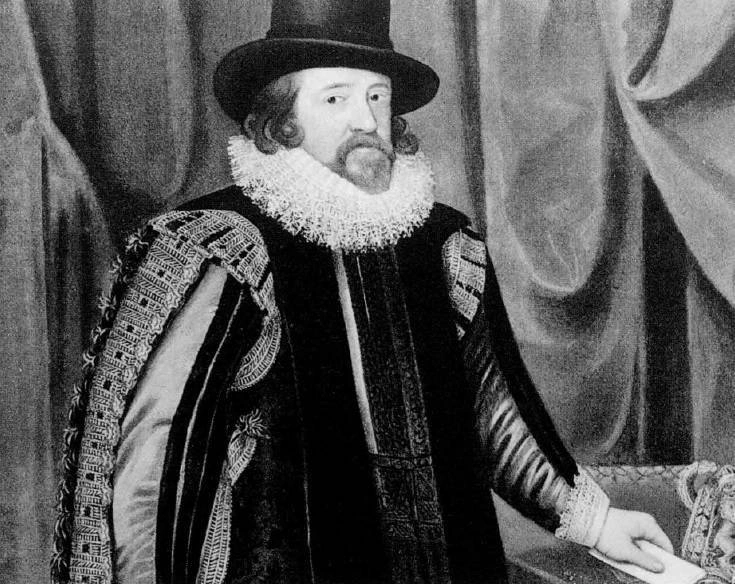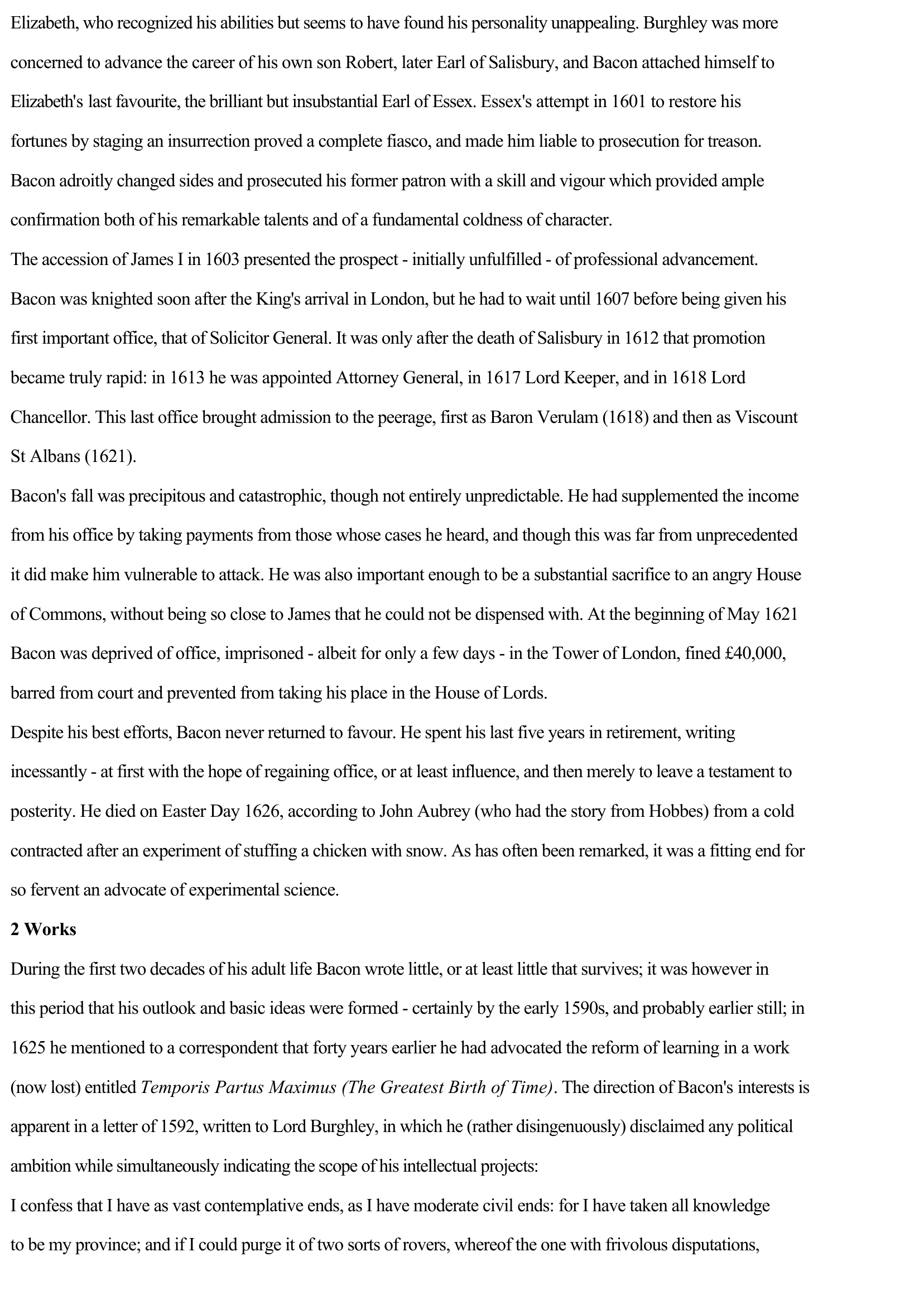Bacon, Francis
Publié le 22/02/2012

Extrait du document


«
Elizabeth, who recognized his abilities but seems to have found his personality unappealing.
Burghley was more
concerned to advance the career of his own son Robert, later Earl of Salisbury, and Bacon attached himself to
Elizabeth 's last favourite, the brilliant but insubstantial Earl of Essex.
Essex's attempt in 1601 to restore his
fortunes by staging an insurrection proved a complete fiasco, and made him liable to prosecution for treason.
Bacon adroitly changed sides and prosecuted his former patron with a skill and vigour which provided ample
confirmation both of his remarkable talents and of a fundamental coldness of character.
The accession of James I in 1603 presented the prospect - initially unfulfilled - of professional advancement.
Bacon was knighted soon after the King's arrival in London, but he had to wait until 1607 before being given his
first important office, that of Solicitor General.
It was only after the death of Salisbury in 1612 that promotion
became truly rapid: in 1613 he was appointed Attorney General, in 1617 Lord Keeper, and in 1618 Lord
Chancellor.
This last office brought admission to the peerage, first as Baron Verulam (1618) and then as Viscount
St Albans (1621).
Bacon's fall was precipitous and catastrophic, though not entirely unpredictable.
He had supplemented the income
from his office by taking payments from those whose cases he heard, and though this was far from unprecedented
it did make him vulnerable to attack.
He was also important enough to be a substantial sacrifice to an angry House
of Commons, without being so close to James that he could not be dispensed with.
At the beginning of May 1621
Bacon was deprived of office, imprisoned - albeit for only a few days - in the Tower of London, fined £40,000,
barred from court and prevented from taking his place in the House of Lords.
Despite his best efforts, Bacon never returned to favour.
He spent his last five years in retirement, writing
incessantly - at first with the hope of regaining office, or at least influence, and then merely to leave a testament to
posterity.
He died on Easter Day 1626, according to John Aubrey (who had the story from Hobbes) from a cold
contracted after an experiment of stuffing a chicken with snow.
As has often been remarked, it was a fitting end for
so fervent an advocate of experimental science.
2 Works
During the first two decades of his adult life Bacon wrote little, or at least little that survives; it was however in
this period that his outlook and basic ideas were formed - certainly by the early 1590s, and probably earlier still; in
1625 he mentioned to a correspondent that forty years earlier he had advocated the reform of learning in a work
(now lost) entitled Temporis Partus Maximus (The Greatest Birth of Time) .
The direction of Bacon's interests is
apparent in a letter of 1592, written to Lord Burghley, in which he (rather disingenuously) disclaimed any political
ambition while simultaneously indicating the scope of his intellectual projects:
I confess that I have as vast contemplative ends, as I have moderate civil ends: for I have taken all knowledge
to be my province; and if I could purge it of two sorts of rovers, whereof the one with frivolous disputations,.
»
↓↓↓ APERÇU DU DOCUMENT ↓↓↓
Liens utiles
- NOUVELLE ATLANTIDE (LA), Francis Bacon - résumé de l'oeuvre
- NOVUM ORGANUM (LE NOUVEL INSTRUMENT), Francis Bacon
- Francis Bacon : Pensées et vues sur l'interprétation de la nature (résumé et analyse)
- NOVUM ORGANUM ou Éléments d’interprétation de la nature Francis Bacon - résumé, analyse
- NOUVELLE ATLANTIDE (La ) - Francis Bacon

































